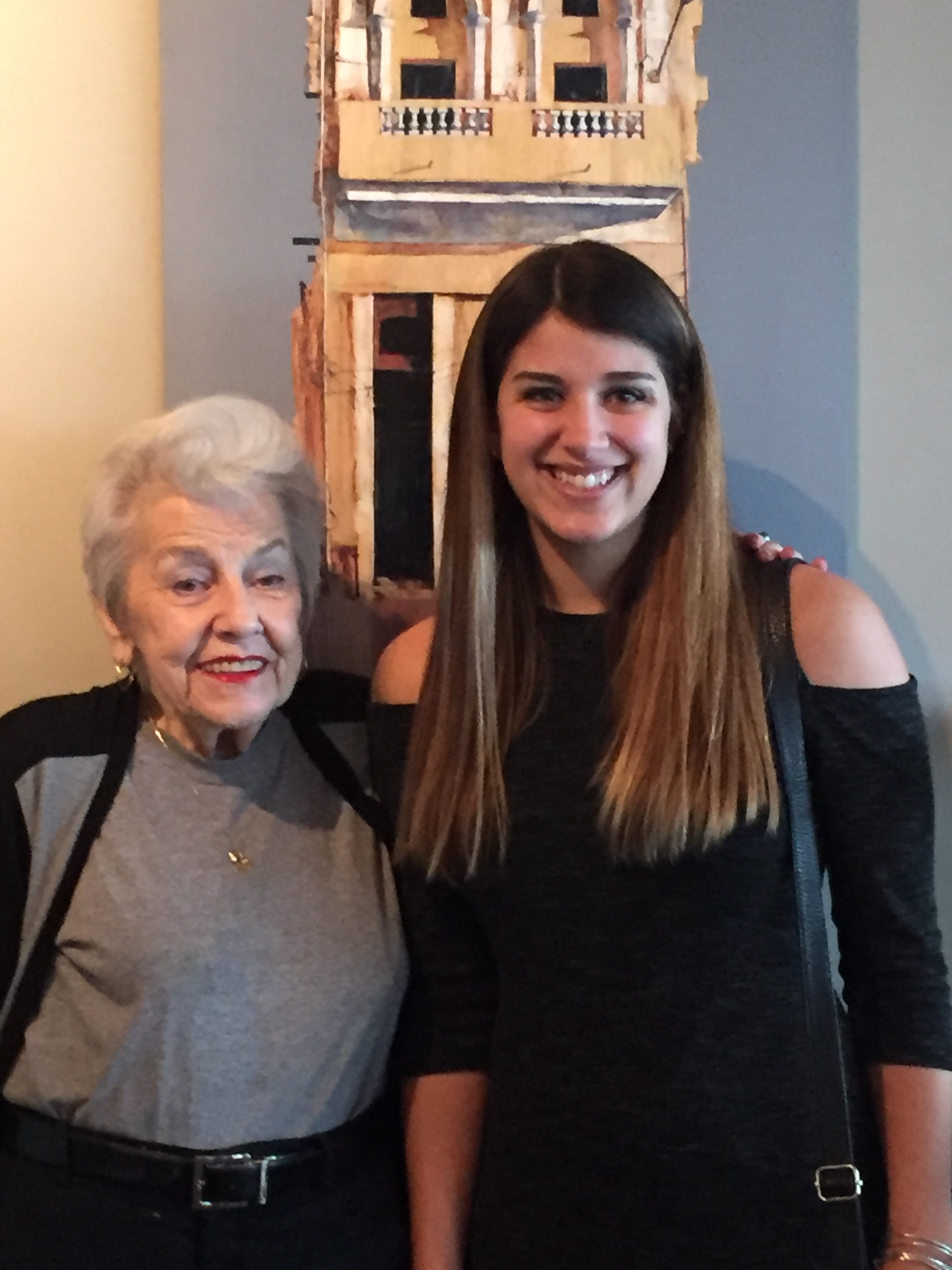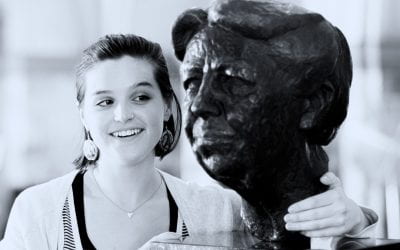A History of Excellence in Mathematics
SCHOLARSHIP SPOTLIGHTby ANNE PUOTINEN
The study of mathematics is a key component to liberal arts and Science, Technology, Engineering and Mathematics (STEM) curriculum for a well-rounded education. A rigorous and elegant discipline, mathematics prepares students for a wide range of career paths including, and certainly not limited to, teaching, computer science, actuarial studies and finance. Mathematics also enhances critical thinking from both theoretical and practical angles to analyze information and formulate questions.

Roosevelt University has had a strong mathematics program from its inception. “We’re very proud of our programs in mathematics and actuarial science at Roosevelt. Our excellent faculty supplement traditional textbook teaching with an emphasis on applied skills, which means that math students at every level learn how to use math to solve real-world problems and learn how to communicate their findings persuasively,” said Bonnie Gunzenhauser, dean of the College of Arts and Sciences. “Now more than ever, quantitative literacy is crucial to good career outcomes and effective citizenship, and our math faculty prepare our students for both.”
An important component of Roosevelt’s mission is to offer financial support to help students achieve their educational goals. Scholarships have been critical to fulfilling that mission. Since 2011, four alumni have created scholarship opportunities to provide financial support to students whose study is in the College of Arts and Sciences, specifically mathematics.
Lois M. Kahan established an endowed scholarship in 2016 to provide financial support, preferably to women mathematics majors studying at Roosevelt. Kahan earned a BA in Mathematics from Roosevelt in 1952 and served as its second-ever registrar, helping countless students navigate financial aid and registration. She is also a world traveler and a proud member of the Explorers Club and the Circumnavigators Club. As an undergraduate at RU, Kahan thrived as a mathematics major. “It was wonderful. I had incredible professors, including Jack Silber and Alan Street, and it was marvelous,” Kahan said. “In most of my classes, I was the only female and in a couple of my classes there was one other woman who was a chemistry major with a math minor.”
Kahan was initially drawn to mathematics because of the proofs and solving equations. “You can always prove that your answer is right … you would know that you were right.” She wanted to establish the scholarship because of how important RU had been to her as a student and in her career. As a friend of hers said, “Roosevelt gets under your skin.”
Dr. John Quiring, a Roosevelt mathematics graduate, established an annual merit scholarship for math majors three years ago. He earned his PhD in statistics from the University of Minnesota and since 1974 has served as the founder and chief science officer of QST Consultations, a clinical research support company providing clinical research support for the pharmaceutical and medical device industries. QST’s work includes data management, biostatistical analysis and developing statistical methodologies.
Dr. Martha Sklar, a mathematics graduate of Roosevelt, established an endowed scholarship for a student studying mathematics or mathematics education. “I have always loved math; since I received scholarships at RU while I was there, I wanted to pay it forward so that other students could benefit as I did,” Sklar wrote. She taught mathematics at Roosevelt High School in Chicago and at New Trier Township High School in Northfield, Illinois. She also taught mathematics at Los Angeles City College and eventually served as the dean of academic affairs until she retired. “I was able to show my love for mathematics to the students,” she wrote. Sklar appreciates the importance of good mathematics instruction, especially that of Professor Street.
Sharlene Stein, who also earned a BS in mathematics, established an annual scholarship with a preference for female first-generation students pursuing an undergraduate degree in the College of Arts and Sciences, with a preference for mathematics majors. “There were not a lot of math majors then, so we all knew each other. And hardly any girls,” Stein wrote. “The head of the math department was a man named Professor Jack Silber, and we all loved him.”
“ Now more than ever, quantitative literacy is crucial to good career outcomes and effective citizenship, and our math faculty prepares our students for both.”
– Phyllis Cavallone-Jurek
Educational Supervision & Administration, ’98
Stein was also the first in her family to attend college. After graduation, Stein earned her master’s degree in mathematics from the University of Illinois at Chicago and then worked as a systems engineer at IBM. Stein once again found very few women in math and physics. “Most of us were first generation … So even though everybody took the train downtown and home again … it was still a very exciting experience for us.”
This group of alumni is united in their mission to help make STEM education affordable and accessible, understanding the value of these fields and the importance of financial support to guide the next generation of students.
As Sklar put it, “I have always loved math. Since I received scholarships at RU while I was there, I wanted to pay it forward so that other students could benefit as I did.”
Roosevelt University is grateful for the philanthropy of these alumni who have provided financial support for students in mathematics. If you would like to establish a scholarship or want more information, please contact Anne Puotinen, Stewardship Director in Institutional Advancement, at apuotinen@roosevelt.edu or (312) 341-3625.
More in this section
In Memoriam | Winter 2024
Roosevelt University extends its deepest sympathy to the loved ones of recently deceased alumni and friends.
Roosevelt to launch alumni scholarship program
University leaders hope a new scholarship program will encourage alumni looking to continue their education to include Roosevelt on their list of potential universities.


